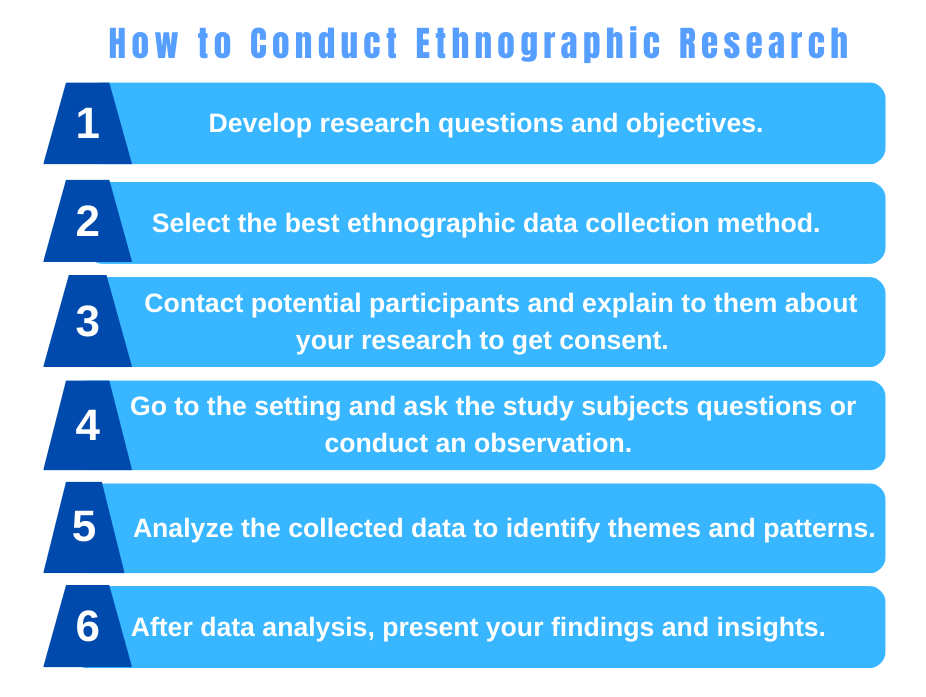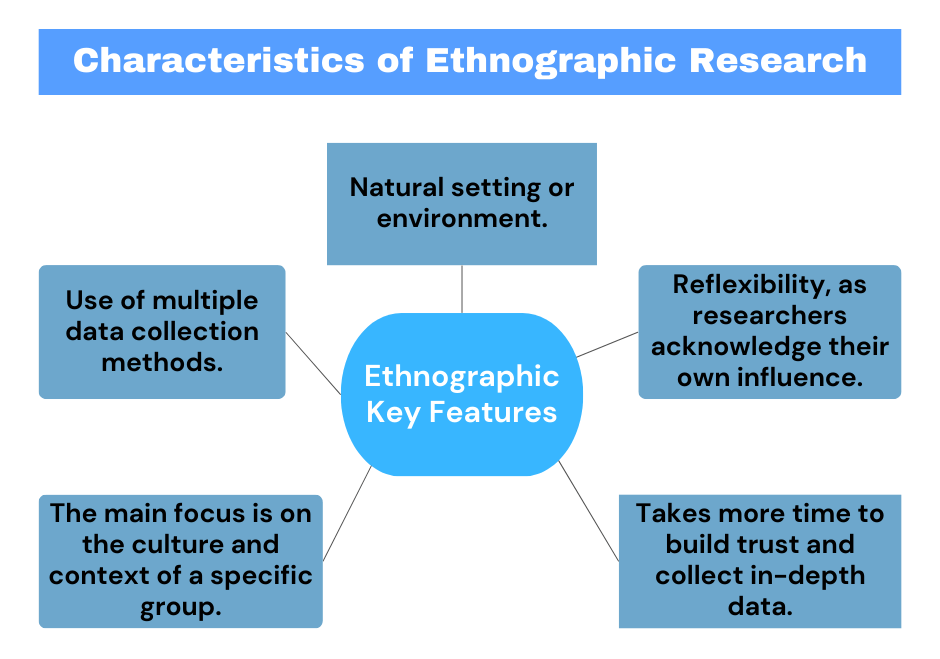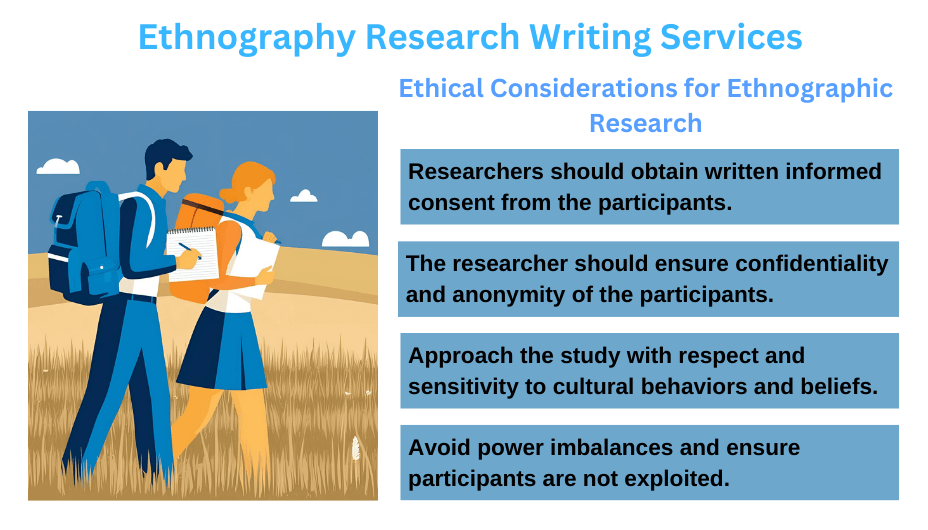Factors We Consider When Writing Ethnography Qualitative Research
Having spent a while and resources immersed in a particular community or organization, interacting and observing their behavior, culture, and designs, researchers and students may find it overwhelming or lack enough time to compile the final reports, thus, opting to outsource ethnography qualitative research writing services. Our writing company helps researchers in ethnographic studies at different academic levels and fields to complete their final reports and effectively communicate their study findings to the target audiences within the constraints of time.
We also offer data analysis services for quantitative research and other methods of qualitative research. Other qualitative research methods include; content analysis, narrative analysis, phenomenology, case studies, and grounded theory. After data collection through ethnographic methods, one can hire someone to write the research on their behalf. Our writing services are available on a 24/7 basis at affordable prices.
The qualitative approaches in ethnographic research entail interacting with variables or participants in their natural environment aiming to achieve specific study objectives. In modern society, ethnographic research methods are being used by digital researchers to gain an understanding of the natural behavioral patterns of online communities. The modern level of ethnographic research relies on the data collected from digital communications across online communities to identify and analyze social behavioral patterns.
The importance of ethnographic studies can be proved by surveying the number of sectors employing scholars in such disciplines as management, research, and development printed entities. Research shows that 27% of anthropologists are employed in management, scientific, and technical consulting services and 20% in research and development in the social sciences and humanities among other sectors.
Ethnographic qualitative research methodologies depend on the data collected from participant observation, interviews, and other field works and are influenced by the target audiences, study goals, processes, and contexts of the subjects. This article provides an outline of the factors that we consider to ensure our clients receive the best ethnography research writing help.

1. The type and field of ethnographic research
Ethnographic qualitative research is a multi-dimensional design that can be adopted in various fields including education, medicine, business, and psychology. Our writers are well-versed with the specific characteristics of the different types of ethnographic research approaches and how to contextualize them in different fields of human endeavors. Therefore, scholars and researchers from any discipline, field, or academic level can purchase ethnography qualitative research written by our experts.
2. Adequacy of field notes and other data sources
Field notes are essential data collection methods in ethnographic qualitative research. When hired to write an ethnographic qualitative study report, we take into account the field notes comprising the experiences, observations, and interactions between the researcher and the participants. Such notes help in determining the type of style to be adopted when writing the report.
3. Understanding of the target audience and the study topic
We write ethnographic qualitative studies for different audiences including students, journals, academic supervisors, and online communities in modern society, depending on the clients' goals. We must, therefore, understand the target audience or the ideal reader to customize the tone, style, and enhance clarity and effectiveness in communication. The target audience influences the language, writing style, and standard requirements for the ethnographic research reports. We can also help students at the initial stages of their projects in case of difficulties in narrowing down to a specific topic in the subject area.
4. Structure of the ethnography qualitative research
When writing reports for ethnographic studies, our writers adhere to the guidelines and instructions given by the clients and their target audiences for such reports. Some institutions/clients may require that the paper begins by describing the historical background or the research problem, revealing the various themes arising from the data analysis, and a concluding section. Other researchers may require a report with the standard structure, including the introduction, methods, findings, discussion, and conclusion.
The common structural elements that we consider in our ethnography qualitative research writing services include:
(a). The title page
We design the title page depending on whether we are writing a student or a professional paper. The general components of the title page include the main idea/topic of the study, name of the author/student, institutional affiliation, acknowledgments, and any other matter as the client may have instructed.
(b). The abstract of the ethnographic research
In the abstract section, we provide a brief and comprehensive summary of the research, allowing readers to explore the content of the paper easily. We ensure that the abstract contains information that attracts the readers' attention and engages them because the section determines whether one will read the entire paper or not. Our expert writers provide the best ethnography research writing help to ensure accuracy, concision, readability, and coherence in the abstract section.
The section contains a brief statement of the research questions, objectives, and purpose of the study, the design, type and number of participants, and other data sources applicable in the ethnographic approach. In addition, we briefly state the main findings, implications, and significance not only to the research participants and the social setting but also in directing further research, policy, and practice.
(c). The introduction of the ethnography
The introduction comprises a thesis statement and an outline of the research, informing the readers on what to expect from the entire paper. We write a clear thesis statement that sets the main theme of the ethnographic research through which the reader understands the overall idea of the paper. We have expert ethnography research writers who ensure the introduction effectively describes the research objectives and questions; framing them in their contexts. In addition, we justify the rationale for choosing ethnography in qualitative research practice for that particular topic and purpose, and the approaches to inquiry such as participant observations, focus groups, and other methods that may have been used to collect data.
We review, critique, and synthesize relevant literature and previous research pertaining to the topic under study. Literature review in an ethnographic study aids in gathering information, enhancing the credibility of one's research methods, and providing a basis on which to establish an argument. The introduction is written clearly and directly without jargon to provide background information of the ethnography qualitative research and engage readers effectively.
(d). Ethnography qualitative research methodologies for data collection and analysis
The methods section comprises information on the study design, data collection and analysis approaches, rationale for the selected design, and how it fits the research purpose and objectives. With the best ethnography research writing help, one is assured of a comprehensive methodology chapter. Our services are customized to cater to the clients' needs depending on the forms of data collected, whether selected informants, own assumptions while interacting with subjects, unstructured interviews, observational research on study participants, or any other method applicable to ethnography were used.
With our writing services, ethnography qualitative researchers in social sciences, education, psychology, business, and other applicable fields can get a clear description of data collection and qualitative analysis strategies, how and where such data were collected, potential biases, and limitations of such methods. Any alterations of collection strategies owing to the study population, rationale, or evolving findings, the extent of engagements between researchers and the study participants are also discussed in the methodology section.
After describing the data collection and analytic strategies, we provide the methodological integrity of the process. Adequacy of the data, management of researchers' perspectives, the extent of meaning and insights of contributions, and the consistency in qualitative analysis processes are some of the factors we consider when evaluating the methodological integrity of ethnographic research. Other qualitative analysis methods we use include thematic, discourse, narrative, and content analysis.
(e). Findings obtained using ethnographic research methods
The findings obtained from analyzing the ethnographic qualitative data are presented while ensuring compatibility with the study design. We ensure the appropriate use of relevant illustrations such as quotes, excerpts, field notes, observational data, and photographs in organizing and conveying the findings to effectively engage the reader. Those who purchase ethnography qualitative research from us get the benefits of having a clear and concise findings section that only contains information directly related to the study topic and argument. Depending on the study goals and characteristics, findings may include numerical data or not in the qualitative ethnographic method. We describe the findings in a manner that demonstrates their compatibility with the qualitative methods and study design.
(f). The discussion section
In the discussions section, we describe the main contributions of the ethnographic qualitative research findings in enhancing understanding in the respective disciplines. It is imperative to specify the types of contribution and how the findings can be used in various fields to facilitate important purposes. In this section, our writers also explore alternative explanations for the findings, limitations, and strengths of the study, ethical challenges, and implications for conducting research in the future, policy, practice, and disciplinary understandings.
(g). Conclusion
The concluding section of the ethnographic qualitative research paper provides a summary of the argument presented in the thesis statement in the introduction and elaboration of how the study fits into the larger body of inquiry and existing knowledge in the particular topic. Our ethnography research writers ensure clarity and concision in this section to enable readers to understand the main significance of the study.
5. Continuity and flow
Our written ethnography qualitative research papers are characterized by logical consistency of expression and a seamless sequencing of words and sentences. The dedicated team comprises editors and proofreaders who subject the written work through strict quality checks to ensure it does not contain inconsistencies, contradictions, omissions, or irrelevancies, thus, enhancing the credibility of arguments presented in the paper. To ensure continuity and clarity, we review the papers for transition between sentences, paragraphs, and ideas, and proper use of noun strings to avoid confusing the reader.
6. Conciseness and clarity
We offer the best ethnography qualitative research writing help that entails presenting arguments and ideas clearly and precisely. Ensuring conciseness and clarity helps readers in understanding the meaning being conveyed through the writing and facilitates accuracy and transparency in communication between academic audiences.
For clarity and conciseness purposes, our writers ensure no wordiness and redundancy in the papers, sentence lengths vary logically, use professional and formal academic tone to convey research ideas to readers, and no contractions and ambiguity throughout the work. In addition, we limit the use of jargon and technical terms so that a lay reader can understand the ethnography qualitative research without seeking an interpretation from specialists in that field.
7. Grammar and usage
Using incorrect grammar and poor syntax in writing impedes clarity in communication and introduces ambiguity that distracts readers. We, therefore, ensure strict compliance with all the rules governing grammar and usage in our writing. Verbs, pronouns, elements of sentence construction, and bias-free language must be correctly used to improve the clarity and effectiveness with which the researcher communicates findings to their respective target audiences.
8. Mechanics of style
We strictly adhere to the given guidelines to ensure clarity, consistency, and the best presentation for all our written papers. Our writers ensure proper use of punctuation marks such as the period, comma, semicolon, colon, quotation, among others, with proper positioning and spacing within sentences to bring out the intended meaning.
Other elements of the mechanics of style that we consider include spelling, capitalization, italics, abbreviations, and numbers that must be used with consistency and uniformity throughout the writing.
9. Citation of sources and reference lists
Proper citation is mandatory for any theories, ideas, and works of other researchers that are not the author's original work. Only the sources that were consulted and incorporated in the text should be factored in the references section. We strictly follow the style guidelines provided for the paper to format references correctly. By acknowledging other people's works and contributions to one's study, we help in preventing plagiarism that violates the ethical standards of academic research practice, thereby, protecting the intellectual integrity of scholarly information. Both in-text citations and reference lists must strictly comply with the requirements of the style manual specified for that particular paper.
10. Appendices
Where applicable, we use the appendix section to demonstrate materials that supplement the paper but could be distracting if incorporated within the text. Only the materials that are useful in helping readers understand a particular element of the research, evaluate, or replicate the study are factored in the appendix. Such materials may include instructions to participants, complex demographic features of study populations, and reporting guidelines among others.
11. The general format of the ethnography qualitative research paper
The physical appearance of a paper influences the first impression that one gets before reading the content. Our ethnography qualitative research writing services help in formatting the elements of a paper to give it a professional appearance. We ensure appropriate order of pages as recommended by the style manual, page headers, fonts, line spacing, margins, paragraph alignment, indentation, and the length of the paper are as provided for in the style guide requirements.
12. The overall organization of the ethnography
A superb structural organization of a paper is fundamental to precise, logical, and clear communication. To enhance the organization and order of the writing, we ensure the proper use of elements such as heading levels, section labels, and keywords within the text. Headings facilitate the identification of topics or the purpose of the content in each section and help readers to gain familiarity pertaining to the organization of the paper. We, therefore, ensure they are concise for readers to anticipate fundamental points of the paper and track the development of the ethnographic research arguments.
Considering these factors results in high-quality written papers that are impressive to the target audiences. Students and researchers who purchase ethnography qualitative research from us are assured of flawless, quality, and plagiarism-free papers that effectively convey the study ideas to their target audiences and accomplish the purpose, aims, and objectives of the inquiry. Review our order process today to learn how to place an order with us or join our live chat to talk to one of our agents for an immediate response.







